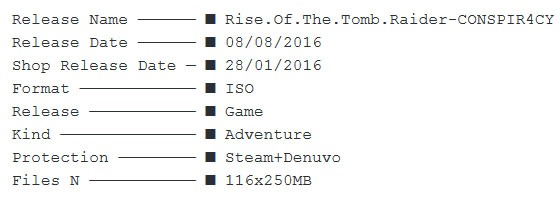Atlantic Records has asked a New York judge to help reveal the identity of an individual who leaked an unreleased track to Reddit. Following a late June launch, Heathens, a track by Twenty One Pilots, was scheduled to appear on “Suicide Squad: The Album” this week. However, a Reddit user leaked the song mid-June and now the race is on to track him or her down.
Source: TF, for the latest info on copyright, file-sharing, torrent sites and ANONYMOUS VPN services.
 Music gets uploaded to the Internet every minute of every day, much to the irritation of recording labels. Largely these uploads are dealt with via takedown notices but occasionally there is a desire to track down the individual behind the unauthorized distribution.
Music gets uploaded to the Internet every minute of every day, much to the irritation of recording labels. Largely these uploads are dealt with via takedown notices but occasionally there is a desire to track down the individual behind the unauthorized distribution.
One such case currently before the Supreme Court of the State of New York sees Atlantic Recording Corporation trying to obtain the identity of a person who uploaded some of their copyrighted content to the Internet in June.
The complaint concerns the track ‘Heathens’ by the platinum-certified band Twenty One Pilots.
“Prior to June 15, 2016, Atlantic had provided access to a digital copy of Heathens only to an extremely limited number of individuals,” the complaint reads.
“These individuals included members of 21 Pilots, their manager, Atlantic and [record label] Fueled by Ramen executives and members of Atlantic’s radio field staff. In each such case, the individual was barred from distributing the recording until the scheduled release date of June 24, 2016.”
Atlantic says that all of its employees who were aware of the impending release were “contractually obligated and/or under a fiduciary obligation” not to disclose its existence until June 24. However, things didn’t go to plan.
On or around June 15, someone with early access to the track posted it to a file-hosting service called Dropfile.to. Following that upload it’s alleged that the poster then advertised the track for download on Reddit.
“The Poster posted a link to the file he or she uploaded to Dropfile.to to the Twenty One Pilots subreddit (a publicly accessible message board, hosted by Reddit Inc.), with the title “[Leak] New Song – ‘Heathens”,” the complaint reads.

As illustrated in the image above, the Reddit thread was indeed started on June 15 and can still be found today. It was posted by a user calling him/herself “twentyoneheathens.”
That user account is still on Reddit but its solitary purpose appears to have been the advertise the availability of the track on Dropfile. No other actions are registered against the account, a hindrance to anyone trying to find out who is behind it.
After becoming aware of the leak, Atlantic says it tried to stop distribution but had minimal success.
“Upon becoming aware of the Posting, Atlantic attempted to have the illegally distributed copies of Heathens removed from the Internet. Despite expending significant effort and funds in this attempt, the removal efforts were ultimately unsuccessful in curtailing further widespread distribution,” the label says.
TorrentFreak has been able to confirm a fairly broad takedown campaign which began with RIAA action on June 16. From there, the UK’s BPI appears to have taken over, sending hundreds of takedowns to Google referencing dozens of sites.
Fighting a losing battle, Atlantic took the decision to release the track on June 16, the day after its leak online and well ahead of its planned August 5 album debut. The track had been scheduled to appear on “Suicide Squad: The Album” this week to coincide with the release of the movie of the same name.
Atlantic says this early release frustrated its marketing efforts, something which directly hit sales.
“Following the June 16, 2016, release, sales of the Heathens single, which were unsupported by Atlantic’s carefully-planned marketing strategy, failed to reach predicted levels, causing substantial harm to Atlantic in the form of lost single and album sales revenue,” the complaint reads.
So now, as expected, Atlantic is on the warpath. In its complaint the company asks the Court to force Reddit to hand over the information, IP addresses included, it holds on the person who uploaded the link to the track.

Suspecting that Atlantic would also try to get information from Dropfile, TorrentFreak contacted the site’s operator for comment. He informs us that the label hasn’t made contact with him.
“[This news] comes as a surprise to me, we have not heard from anyone about it prior to this,” he says.
“I guess that Atlantic Records figured out it will be easier to get the poster’s data from Reddit or they will use official authorities to contact us in that matter (which might take months).”
Further complicating any retrieval of data from Dropfile are the site’s logging policies.
“Dropfile is a simple service for anonymous sharing of files that need to be placed online only temporarily,” the site explains.
“We keep no logs on our side whatsoever. We don’t use cookies, any kind of traffic tracking (Google Analytics), social media buttons that could track you (Facebook, Twitter) and have no ads that could track you.”
Furthermore, Dropfile is located in Slovakia where there is no mandatory requirement to log visitor data.
From Atlantic’s complaint, it seems clear the label is expecting the culprit to be close to home.
“If the Poster is not an Atlantic employee, then he or she likely obtained the Recording from an Atlantic employee, who would have breached his or her contract and/or fiduciary duties to Atlantic by providing the Poster access to the Recording. Atlantic is unaware of the true identity of the Poster and is unable to ascertain that information from any source other than Reddit,” the label adds.
It seems likely that Reddit will comply with the subpoena but only time will tell whether it will lead to the leaker. The original track uploaded to Dropfile has now expired.
“Files are physically removed from servers after 24 hours from their upload or when reported. After that, we have no clue what the file was. And we never knew who uploaded it,” Dropfile concludes.
Source: TF, for the latest info on copyright, file-sharing, torrent sites and ANONYMOUS VPN services.

 Despite a reputation for not doing enough to thwart online piracy, Russian authorities have become unusually keen to make amends in recent years.
Despite a reputation for not doing enough to thwart online piracy, Russian authorities have become unusually keen to make amends in recent years.














